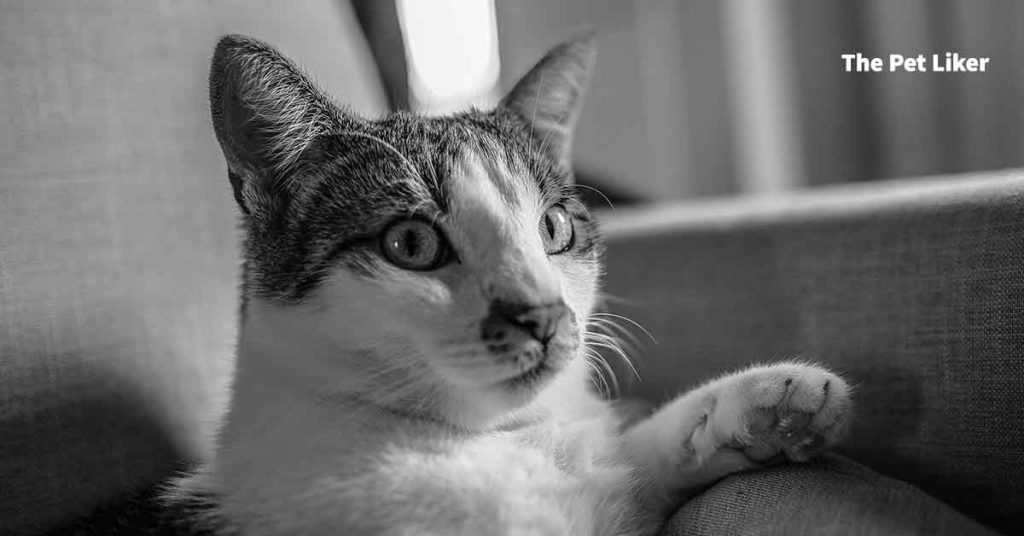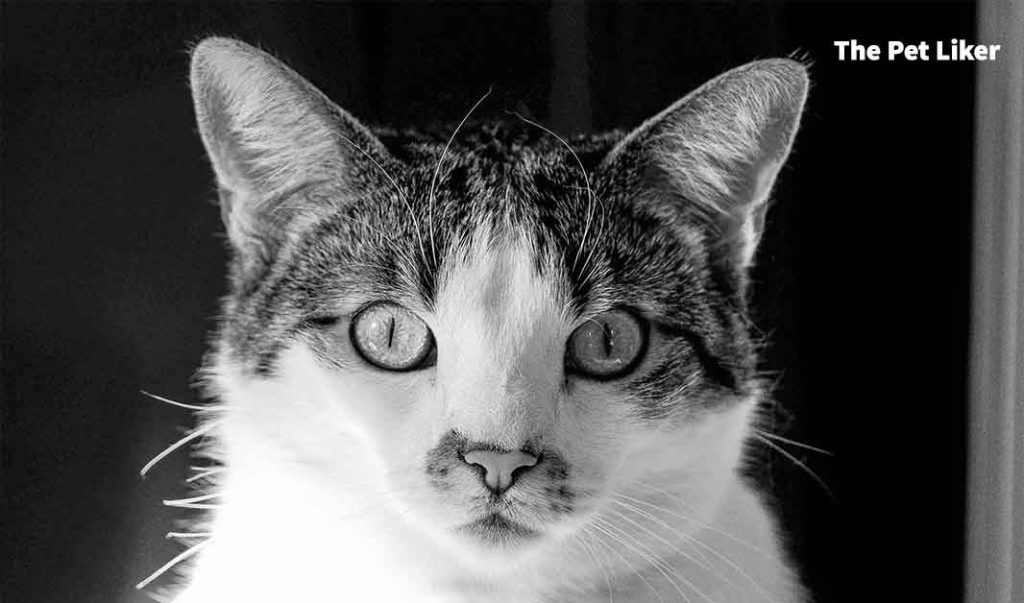Cats are often seen as independent and fearless animals, but like all creatures, they can experience fear and anxiety.
Why are cats scared? Cats may be scared for a variety of reasons, including past traumatic experiences, unfamiliar or threatening environments, and innate instincts and personality traits.
Understanding why cats may be scared is important for providing them with the support and care they need to feel safe and secure in their surroundings.
Whether you are a cat owner, animal lover, or simply curious about feline behavior, exploring the reasons why cats may be scared can help you better understand these fascinating creatures and provide them with the care and attention they deserve.
Why are cats scared?
Cats can be scared for a variety of reasons, both external and internal. Some common external factors that can cause fear in cats to include:
- Loud or sudden noises: Cats have sensitive hearing, and loud or sudden noises such as thunderstorms or fireworks can be terrifying for them.
- Unfamiliar people or animals: Cats are territorial animals, and they may become scared or anxious when introduced to unfamiliar people or animals.
- Changes in routine or environment: Cats thrive on routine and consistency, and any sudden changes to their environment or daily routine can cause anxiety and fear.
- Physical discomfort or pain: Cats may display fearful behavior if they are experiencing physical discomfort or pain, such as from an injury or illness.
On the other hand, some internal factors that can cause fear in cats include:
- Genetics: Some cats may have a genetic predisposition to anxiety or fearfulness.
- Lack of socialization: Cats that have not been socialized properly may become fearful of new situations or people.
- Previous traumatic experiences: Cats that have experienced trauma in the past, such as abuse or neglect, may develop fear-related behaviors as a result.
- Anxiety disorders: Some cats may suffer from anxiety disorders, such as separation anxiety or generalized anxiety disorder, which can cause them to feel scared or anxious even in the absence of an apparent threat.
Why are cats scared of pickles?
There are several theories as to why cats may be scared of pickles or cucumbers. One possible explanation is that cats have an innate fear of snakes, and pickles or cucumbers resemble the shape and texture of a snake.
This could trigger a natural response of fear and caution in cats, as they are hardwired to avoid potential predators.
Another theory suggests that the sudden appearance of a cucumber or pickle could startle a cat, causing them to react in a defensive manner.
Cats are naturally wary of unfamiliar objects and sudden movements, and cucumber or pickle placed behind them without their knowledge could trigger a startled response.
Why are cats scared of balloons?
Cats can be scared of balloons for a variety of reasons. One possible explanation is that the sudden movement, sound, and texture of a balloon popping or rubbing against surfaces can startle cats and trigger their natural fear response.
This can be especially true for cats that are sensitive to loud noises or have a heightened startle reflex.
The static electricity that builds up on balloons can cause them to stick to surfaces, which can further startle cats and make them feel uncomfortable.
This can be especially true if a balloon pops unexpectedly, as the sudden release of air can create a loud noise and cause the balloon to fly around the room, potentially scaring the cat.
Why are cats scared of bananas?
There is no scientific evidence to suggest that cats are inherently scared of bananas. Some cats may react fearfully or cautiously to bananas due to their unusual shape, texture, or scent.
Cats are instinctively wary of unfamiliar objects, and a banana’s curved and elongated shape may look strange and potentially threatening to some cats. Additionally, the scent of a banana can be overpowering to some cats, which can cause them to react with fear or anxiety.
It’s also possible that a cat’s fear of bananas could be due to previous negative experiences.
For example, if a cat has been startled by a banana falling from a countertop or has been chased by a playful owner waving a banana around, they may develop a fear or aversion to bananas as a result.
Why are cats scared of water?
Cats are often portrayed as being scared of water, but the truth is that not all cats are afraid of water.
Many cats do have a natural aversion to water, and this can be attributed to several factors.
One reason why cats may be scared of water is that they have thick fur coat that takes a long time to dry.
When a cat’s fur becomes wet, it can weigh them down and make them feel uncomfortable and vulnerable.
When their fur is wet, it can reduce the insulating properties of their fur, making them feel cold and exposed.
This can be especially true for cats that are not used to being wet or have had negative experiences with water in the past, such as being accidentally dropped in a pool or bathtub.
Why are cats scared of vacuums?
Cats are often scared of vacuums, and this fear can be attributed to a few different factors.
One reason why cats may be scared of vacuums is the loud noise they produce. Vacuum cleaners can emit a high-pitched sound that can be startling to cats, especially if they are not used to the noise or if it is sudden and unexpected.
The sound of a vacuum cleaner can also be similar to other loud or scary noises, such as thunder or fireworks, which can further exacerbate a cat’s fear response.
Another reason why cats may be scared of vacuums is the movement and appearance of the device.
A vacuum cleaner typically moves around quickly and erratically, which can be intimidating to cats, who prefer predictable and familiar movements.
The shape and appearance of a vacuum cleaner can be strange and unfamiliar to cats, which can trigger their natural caution and wariness of unfamiliar objects.
Why are cats scared of snakes?
Cats may be scared of snakes because they perceive them as potential threats or predators.
Snakes are often seen as a natural enemy of small animals like cats, and their slithering movements, hissing sounds, and potentially venomous bites can trigger a cat’s natural instinct to flee or defend themselves.
Cats may have an innate fear of snakes due to their natural instincts and evolutionary history.
In the wild, cats are natural predators that hunt smaller animals, but they also need to be wary of potential threats from larger predators, including snakes.
As a result, cats may have evolved to be cautious around snakes and to associate them with potential danger.
Why are cats scared of humans?
Cats are generally not scared of humans, and in fact, many cats have close and affectionate relationships with their owners.
There are several reasons why a cat might be scared or wary of humans.
One reason why cats may be scared of humans is due to past negative experiences or trauma.
If a cat has experienced abuse or neglect at the hands of a human, they may develop a fear or distrust of all humans, even those who have no intention of harming them.
This fear can be difficult to overcome and may require the help of a professional animal behaviorist to address.
Another reason why cats may be scared of humans is due to their natural instincts and personality traits.
Cats are predators by nature, and they have evolved to be cautious and wary of potential threats.
Cats are independent animals that value their personal space and may become fearful or defensive if they feel threatened or crowded.
Why you should never scare your cat?
Scaring a cat can have a variety of negative effects on their physical and emotional well-being. Here are some reasons why you should never scare your cat:
- Stress and anxiety: When a cat is scared, their body goes into “fight or flight” mode, which can lead to a surge in stress hormones like cortisol. Prolonged exposure to high levels of stress can lead to anxiety and other health problems, such as a weakened immune system, digestive issues, and behavioral changes.
- Trust issues: If you scare your cat, they may start to associate you with fear and become less trusting of you over time. This can make it more difficult to bond with your cat and can damage your relationship.
- Aggression: When a cat is scared, they may lash out in self-defense. This can lead to scratches or bites, which can be painful and potentially dangerous, especially if the cat has not been properly vaccinated.
- Negative behavior changes: Scaring a cat can cause negative changes in their behavior, such as hiding, avoiding interaction, or becoming overly clingy. These changes can disrupt your cat’s daily routine and may be a sign of underlying health or behavioral issues.
Overall, scaring your cat is not a humane or effective way to train or discipline them.
It’s important to approach your cat with patience, empathy, and positive reinforcement, and to avoid using fear or intimidation to control their behavior.
By treating your cat with kindness and respect, you can help build a strong and trusting relationship that benefits both you and your feline companion.
Wrapping Up
At last, we hope that you are no more concerned about “why are cats scared?”
Cats can experience fear and anxiety for a variety of reasons, including past traumatic experiences, unfamiliar environments, and innate personality traits.
Understanding why cats may be scared is important for providing them with the support and care they need to feel safe and secure in their surroundings.
It’s important to approach cats with patience, empathy, and positive reinforcement, and to avoid using fear or intimidation to control their behavior.
Scaring a cat can lead to stress, anxiety, trust issues, aggression, and negative changes in behavior, so it’s best to treat your cat with kindness and respect.
By taking the time to understand your cat’s needs and emotions, you can build a strong and loving relationship with your feline companion.
Thank you so much for reading! Always stay with The pet liker!! Wish a joyful day for your pet!!!



